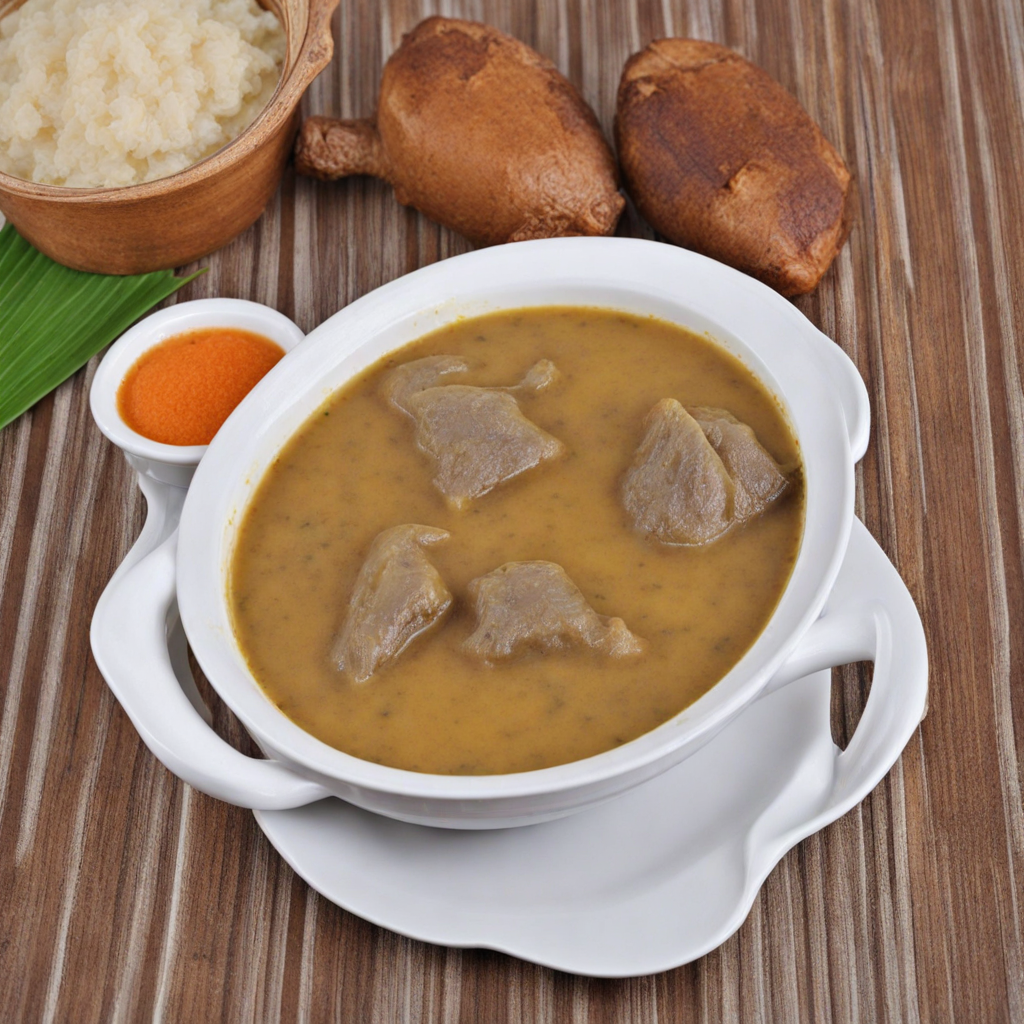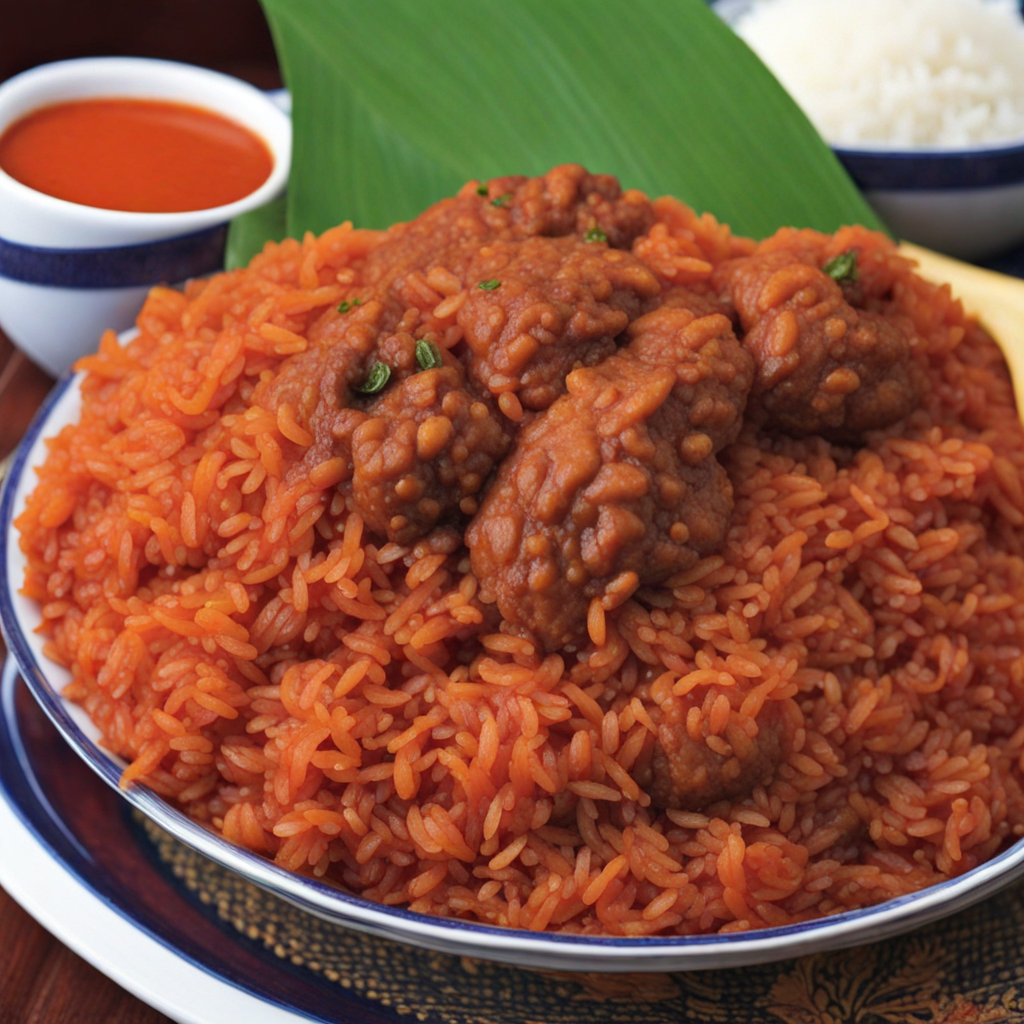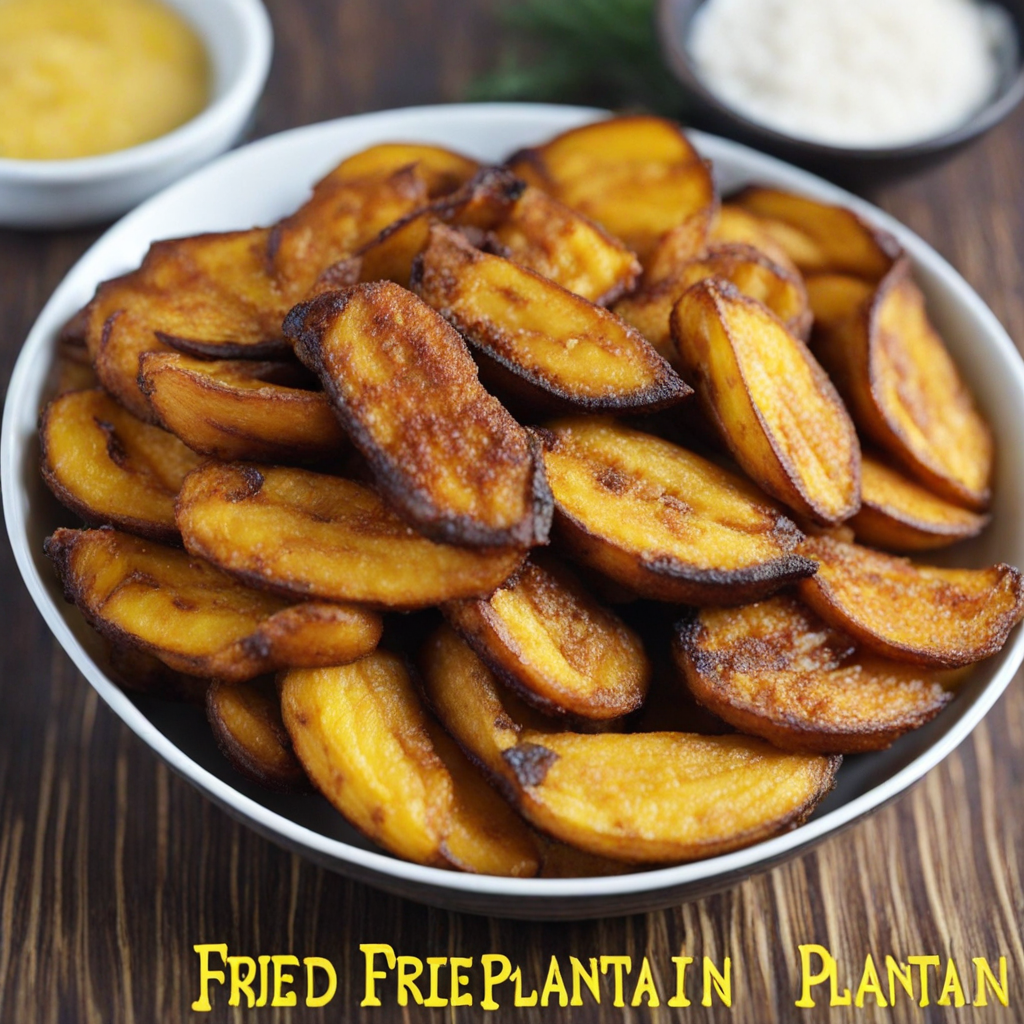Ofe Nsala
Ofe Nsala, often referred to as White Soup, is a traditional delicacy from the southeastern region of Nigeria, especially popular among the Ibo people. This exquisite soup is characterized by its light, milky appearance and is distinctively prepared without palm oil, which sets it apart from many other Nigerian soups. The primary ingredients include fresh fish or meat, typically goat or chicken, and a variety of local spices. The soup's unique flavor profile is enhanced by the use of yams, which are pounded and incorporated to thicken the broth, creating a silky texture that is both comforting and satisfying. What makes Ofe Nsala truly special is its harmonious blend of flavors. The soup is seasoned with a combination of traditional spices, such as pepper, uziza seeds, and a hint of bitter leaf, which contribute to its aromatic quality. The absence of palm oil allows the natural flavors of the ingredients to shine through, offering a subtle yet complex taste experience. Each spoonful delivers a balance of warmth and earthiness, making it a perfect dish for gatherings and celebrations. Served hot, Ofe Nsala is typically accompanied by a side of pounded yam, fufu, or rice, which serves to complement its rich flavors. The dish is not just a meal; it embodies cultural significance and communal sharing, often enjoyed in a communal setting. For those eager to explore new culinary landscapes, Ofe Nsala presents an opportunity to savor the heart of Nigerian cuisine, inviting a deeper appreciation for its rich traditions and the love that goes into its preparation.
How It Became This Dish
The History of Ofe Nsala: A Culinary Heritage of Nigeria Ofe Nsala, often referred to as white soup due to its distinctive lack of color, is a traditional soup from the southeastern region of Nigeria, particularly the Igbo ethnic group. This dish is not just a culinary delight; it is a significant cultural artifact that encapsulates the history, traditions, and social dynamics of the Igbo people. To understand Ofe Nsala is to delve into the rich tapestry of Nigerian history, regional customs, and the evolution of food as a marker of identity. #### Origins of Ofe Nsala The origins of Ofe Nsala can be traced back generations within the Igbo communities. Traditionally, it is believed to have been created by the Nsala people of Umuofia, a fictional town in Chinua Achebe's famous novel "Things Fall Apart." This connection to literature underscores the soup's deep roots in Igbo culture, as it symbolizes not just sustenance but also community and storytelling. The name "Ofe Nsala" translates to "white soup," highlighting its unique preparation that does not utilize palm oil, which is common in many Nigerian soups. Instead, Ofe Nsala is characterized by its base of yam or cocoyam, which is pounded into a smooth paste and thickens the soup, giving it a rich, velvety texture. The soup is further enriched with a variety of meats, including goat, chicken, or fish, and flavored with local spices and seasonings, such as uziza seeds and crayfish. The absence of palm oil is significant, as it reflects traditional Igbo culinary practices and the importance of yam in their agriculture and diet. #### Cultural Significance Ofe Nsala is more than just a meal; it plays a crucial role in various cultural and social contexts within Igbo society. It is often prepared for special occasions, including traditional weddings, funerals, and naming ceremonies, where it serves as a symbol of hospitality and communal bonding. The preparation of this soup is often a communal activity, bringing families and friends together to cook, share stories, and celebrate life’s milestones. In Igbo cosmology, food holds spiritual significance. Ofe Nsala is sometimes associated with healing, particularly during periods of mourning or when someone is recuperating from illness. The soup is believed to have restorative properties, making it a favored dish for those recovering from health challenges. This connection to healing highlights the profound understanding of food as a source of nourishment not only for the body but also for the spirit. Additionally, Ofe Nsala has become emblematic of Igbo identity. As globalization continues to influence culinary practices, traditional foods like Ofe Nsala serve as a reminder of cultural heritage, pride, and continuity. The way it is prepared, enjoyed, and passed down through generations reinforces the values and beliefs of the Igbo people, making it a vital link to their ancestral past. #### Development Over Time Like many traditional dishes, Ofe Nsala has evolved over time, adapting to changes in availability of ingredients, culinary influences, and the lifestyles of the people. In the past, the soup was primarily made with locally sourced ingredients. The yam used was often harvested from family farms, and the meat sourced from local animals. However, with urbanization and globalization, the availability of ingredients has shifted. Today, while traditional methods are still cherished, there is a greater reliance on markets and supermarkets for sourcing components of Ofe Nsala. The rise of urban centers in Nigeria has also brought a fusion of culinary practices. While traditional recipes remain intact, modern variations of Ofe Nsala have emerged, incorporating new ingredients or preparation methods to cater to contemporary tastes. For instance, some cooks now experiment with different proteins, including seafood or even plant-based alternatives, to create vegetarian versions of the soup. This adaptability showcases the resilience of traditional cuisine in responding to modern dietary preferences while maintaining its essence. Moreover, the global diaspora of the Igbo people has contributed to the dissemination and evolution of Ofe Nsala beyond Nigeria’s borders. As Igbo communities establish themselves in various parts of the world, they carry their culinary traditions with them. Restaurants and food festivals celebrating Nigerian cuisine often feature Ofe Nsala, introducing it to diverse audiences and fostering an appreciation for its cultural significance. #### Ofe Nsala in Contemporary Society In contemporary Nigeria, Ofe Nsala remains a staple in both familial and social gatherings. It has transcended its traditional roots to become a beloved dish that represents the rich culinary landscape of Nigeria. Many Nigerian restaurants, both locally and abroad, serve Ofe Nsala as part of their menu, further solidifying its place in the nation's gastronomy. Social media platforms have played a significant role in revitalizing interest in traditional foods, including Ofe Nsala. Food bloggers and influencers often showcase the soup, sharing recipes and cooking tips that inspire younger generations to embrace their culinary heritage. This renewed interest has not only promoted the dish but has also sparked discussions about the importance of preserving traditional foods and practices in an increasingly globalized world. Furthermore, Ofe Nsala is often featured in food documentaries and cultural exhibitions, highlighting its historical and cultural significance. This visibility has fostered a deeper understanding of Nigerian cuisine and its connections to identity, culture, and community. #### Conclusion Ofe Nsala is more than a simple soup; it is a profound expression of Igbo culture, history, and values. Rooted in tradition yet adaptable over time, it symbolizes the resilience of the Igbo people and their culinary heritage. As Ofe Nsala continues to be enjoyed in homes and restaurants, it serves as a reminder of the importance of food in shaping identity and fostering connections within communities. Through each bowl of Ofe Nsala, the stories of the past are preserved, shared, and celebrated, ensuring that this remarkable dish remains an integral part of Nigeria's rich culinary history for generations to come.
You may like
Discover local flavors from Nigeria







